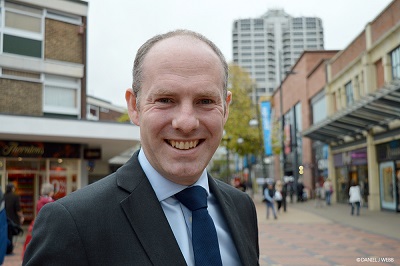
Every new teacher will be trained in how to spot the signs of mental health issues, under a new prevention plan unveiled by the Prime Minister – news which has been welcomed by North Swindon MP Justin Tomlinson.
The move forms part of a wide- ranging package of reforms aimed at ensuring people have the confidence and skills they need to identify mental health issues before they become critical, particularly in young people.
These measures include:
- Training for all new teachers on how to spot the signs of mental health issues, backed up by updated statutory guidance to make clear schools’ responsibilities to protect children’s mental wellbeing
- All 1.2 million NHS staff encouraged to take suicide prevention training from the Zero Suicide Alliance, which we have already committed to support with £2 million of government investment
- Support for school mental health leads so they can help children struggling with self-harm and risk of suicide
- Access to world-class teaching and training materials for all teachers to use in classrooms to meet the new requirements for mental health education for all primary and secondary pupils
- Extra funding to support local authorities to strengthen and deliver local suicide prevention plans so that they better meet the needs of the people they serve
- Updated professional standards for social workers across England to increase their knowledge and skills when helping those with mental health issues
In October the Every Mind Matters initiative is being launched, and from 2020 parents will also get access to targeted advice on how to deal with issues like stress, online bullying and self-harm.
The Government is also launching its Breathing Space scheme to help people facing financial difficulties and will provide respite from debt collection while people seek support to help prevent the onset of mental health problems - with special access for those receiving crisis treatment.
As part of this prevention agenda, the Prime Minister has also announced:
- £1 million to the Office of Students for a competition to find innovative new ways to support mental health at universities and colleges
- Research in response to the the government’s Children in Need review to build new evidence on the best ways to support children who have faced adversity, abuse and neglect
- Greater transparency in how money is spent on mental health services, with a commitment to independent audits to ensure that the funding committed under the NHS Long-Term plan reaches the front line
- Support given to new parents from health visitors and other professionals will be modernised to better support their babies’ behavioural and emotional development
This package of changes will also fast track action to overhaul the Mental Health Act to make it fit for modern society.
The legislation will include banning once and for all the use of police cells as a place to detain people experiencing mental illness, following the Prime Minister’s work to stamp out this practice in the treatment of under-18s.
The Prime Ministers has also confirmed that a White Paper will be published before the end of the year in response to Sir Simon Wessely’s review of the Mental Health Act, setting out the steps taken to tackle unequal treatment faced by ethnic minority groups.
The new measures launched today will build on the largest expansion of mental health services in a generation under the NHS Long-Term Plan.
Last year the Prime Minister announced a record £33.9 billion a year cash funding boost for the health service, including £2.3 billion more a year in real terms on mental health care to support an extra 345,000 children, at least 380,000 more adults with common mental illnesses, 370,000 adults with serious mental illnesses, and 24,000 more new and expectant mothers. The plan will make sure that funding for mental health services will grow as a share of the NHS budget.
Justin Tomlinson MP said: “Both as a local MP and as a Minister, I work with a number of organisations on this issue, and I am delighted the Prime Minister is making early intervention a priority when it comes to mental health treatment. The breadth of the measures announced, highlight the committed and integrated approach we are taking.”

